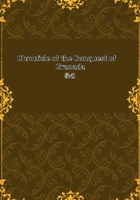
第23章
King Ferdinand held a council of war at Cordova, where it was deliberated what was to be done with Alhama. Most of the council advised that it should be demolished, inasmuch as, being in the centre of the Moorish kingdom, it would be at all times liable to attack, and could only be maintained by a powerful garrison and at a vast expense. Queen Isabella arrived at Cordova in the midst of these deliberations, and listened to them with surprise and impatience. "What!" said she, "destroy the first fruits of our victories? Abandon the first place we have wrested from the Moors?
Never let us suffer such an idea to occupy our minds. It would argue fear or feebleness, and give new courage to the enemy. You talk of the toil and expense of maintaining Alhama. Did we doubt on undertaking this war that it was to be one of infinite cost, labor, and bloodshed? And shall we shrink from the cost the moment a victory is obtained and the question is merely to guard or abandon its glorious trophy? Let us hear no more about the destruction of Alhama; let us maintain its walls sacred, as a stronghold granted us by Heaven in the centre of this hostile land; and let our only consideration be how to extend our conquest and capture the surrounding cities."
The language of the queen infused a more lofty and chivalrous spirit into the royal council. Preparations were made to maintain Alhama at all risk and expense, and King Ferdinand appointed as alcayde Luis Fernandez Puerto Carrero, senior of the house of Palma, supported by Diego Lopez de Ayala, Pero Ruiz de Alarcon, and Alonso Ortis, captains of four hundred lances and a body of one thousand foot, supplied with provisions for three months.
Ferdinand resolved also to lay siege to Loxa, or Loja, a city of great strength at no great distance from Alhama, and all-important to its protection. It was, in fact, a military point situated in a pass of the mountains between the kingdoms of Granada and Castile, and commanded a main entrance to the Vega. The Xenil flowed by its walls, and it had a strong castle or citadel built on a rock. In preparing for the siege of this formidable place Ferdinand called upon all the cities and towns of Andalusia and Estramadura, and the domains of the orders of Santiago, Calatrava, and Alcantara, and of the priory of San Juan, and the kingdom of Toledo, and beyond to the cities of Salamanca, Toro, and Valladolid, to furnish, according to their repartimientos or allotments, a certain quantity of bread, wine, and cattle to be delivered at the royal camp before Loxa, one half at the end of June and one half in July. These lands, also, together with Biscay and Guipuscoa, were ordered to send reinforcements of horse and foot, each town furnishing its quota, and great diligence was used in providing lombards, powder, and other warlike munitions.
The Moors were no less active in their preparations, and sent missives into Africa entreating supplies and calling upon the Barbary princes to aid them in this war of the faith. To intercept all succor, the Castilian sovereigns stationed an armada of ships and galleys in the Straits of Gibraltar under the command of Martin Diaz de Mina and Carlos de Valera, with orders to scour the Barbary coast and sweep every Moorish sail from the sea.
While these preparations were making, Ferdinand made an incursion at the head of his army into the kingdom of Granada, and laid waste the Vega, destroying its hamlets and villages, ravaging its fields of grain, and driving away the cattle.
It was about the end of June that King Ferdinand departed from Cordova to sit down before the walls of Loxa. So confident was he of success that he left a great part of the army at Ecija, and advanced with but five thousand cavalry and eight thousand infantry. The marques of Cadiz, a warrior as wise as he was valiant, remonstrated against employing so small a force, and indeed was opposed to the measure altogether, as being undertaken precipitately and without sufficient preparation. King Ferdinand, however, was influenced by the counsel of Don Diego de Merlo, and was eager to strike a brilliant and decided blow. A vainglorious confidence prevailed about this time among the Spanish cavaliers; they overrated their own prowess, or rather they undervalued and despised their enemy.
Many of them believed that the Moors would scarcely remain in their city when they saw the Christian troops advancing to assail it. The Spanish chivalry, therefore, marched gallantly and fearlessly, and almost carelessly, over the border, scantily supplied with the things needful for a besieging army in the heart of an enemy's country. In the same negligent and confident spirit they took up their station before Loxa.
The country around was broken and hilly, so that it was extremely difficult to form a combined camp. The river Xenil, which runs by the town, was compressed between high banks, and so deep as to be fordable with extreme difficulty; and the Moors had possession of the bridge. The king pitched his tents in a plantation of olives on the banks of the river; the troops were distributed in different encampments on the heights, but separated from each other by deep rocky ravines, so as to be incapable of yielding each other prompt assistance. There was no room for the operations of the cavalry.